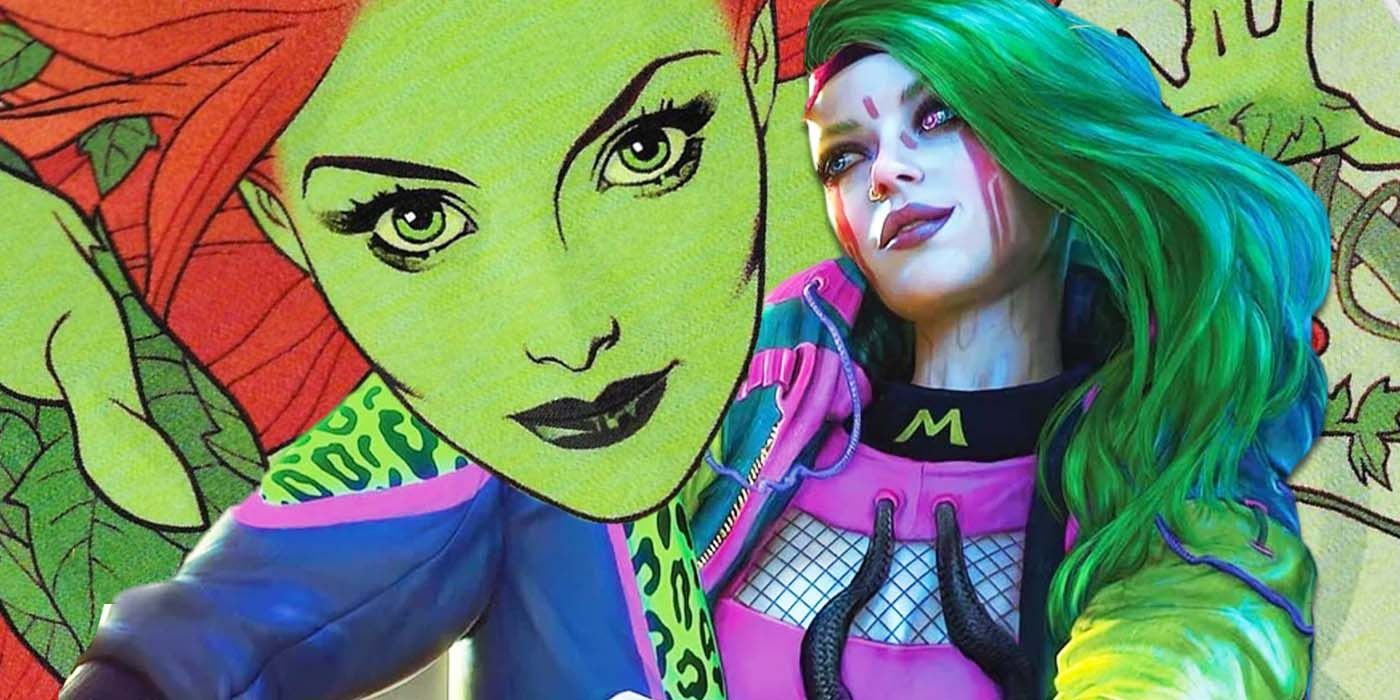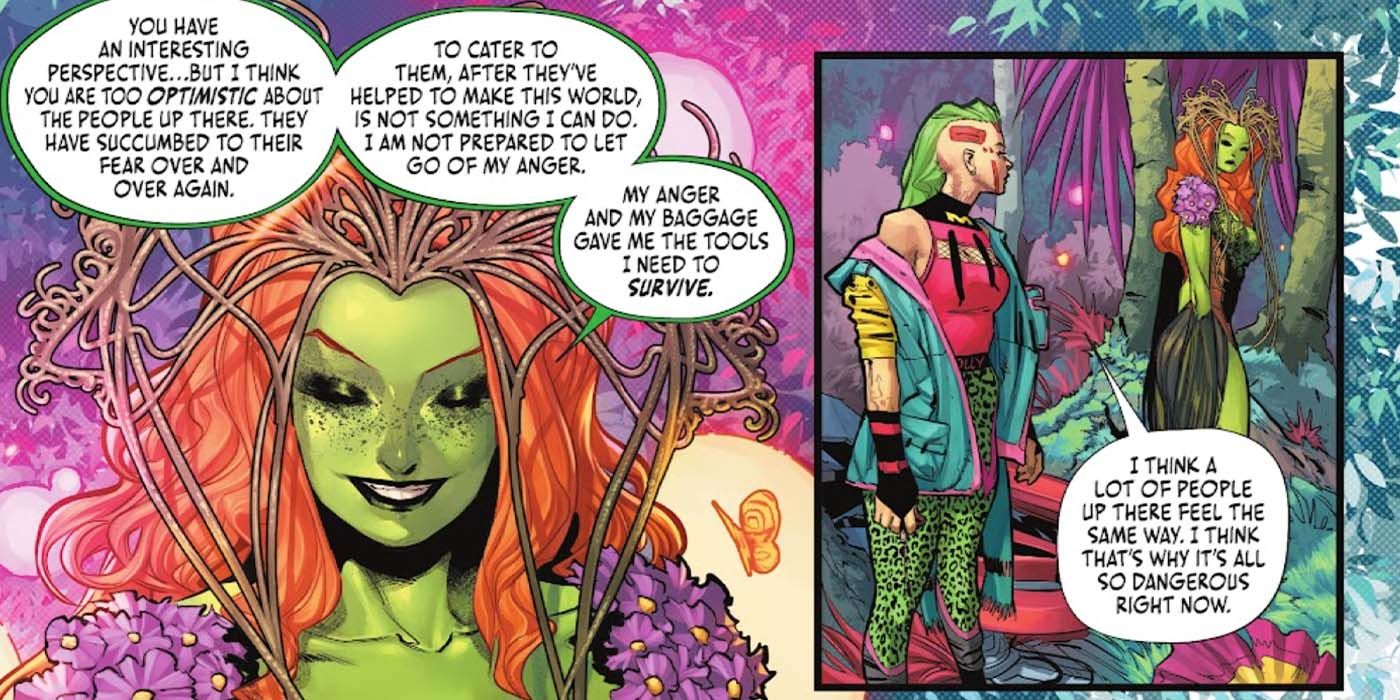
Warning: spoilers for Batman #114 are ahead.
Miracle Molly may be one of the newest characters in Batman's current mythos, but she has startling similarities to one of the Dark Knight's oldest villains in DC Comics, Poison Ivy. As the leader of Gotham's Unsanity Collective, Miracle Molly seeks to make the city a better place through freeing people of their trauma. By enabling people to let go of the darkness of their past with the help of Collective's Mind Machine, Molly believes that a better version of society can be built without psychological baggage. Her ethos of wanting society to grow anew is similar to Poison Ivy, who sees plant cultivation as a better alternative to the evils of human civilization.
In Batman #114 by James Tynion IV, Jorge Jimenez, Tomeu Morey, and Clayton Cowles, Miracle Molly and Poison Ivy discuss the merits of their beliefs, ultimately coming to the same conclusion that the current state of the world is unsustainable. Both Ivy and Molly believe that civilization must be torn down in order for a better future to be forged from new ideals. Given that Ivy, in her more radical Queen Ivy form, has already built her own isolated "Eden" beneath the streets of Gotham, both characters are within striking distance of their goals.
The issue reveals that Miracle Molly wants to liberate humanity from its trauma the same way that Poison Ivy wants to liberate the Earth from the damage wrought by human civilization. Central to both of their aims is using destruction to counter an already existing sense of destruction, evident in current order of the world. By destroying the baggage that makes people unable to imagine a better future for themselves, Miracle Molly is analogous to Poison Ivy's belief that the Earth is better off without it being burdened by humanity's worst impulses. It is no wonder then that Poison Ivy and Miracle Molly have both been deemed "terrorists" at one point or another, due to the radicalness of their ideas.

Miracle Molly's similarity to Poison Ivy stems from the fact that they view society from its fringes, allowing them to see a version of the world that is free from the current order that controls it. After Molly posits that Ivy could be "one of the greatest heroes in the world" if she "let go of all of [her] baggage" and "anger," Ivy says that she is "too optimistic about the people up there," and that "cater[ing] to them" after all of the damage they have brought onto the world is "not something [she] can do." What separates them here is that Molly's ideals necessitate humanity's involvement in saving itself from itself, while Ivy has never been interested in their cooperation to begin with.
Together, Miracle Molly and Poison Ivy represent two female characters who have been misunderstood by society due to the radicalness of their beliefs. Both advocate that transformative change is necessary to free either humanity or the Earth itself from the destruction of human civilization, and these are positions that make them targeted by Gotham's law enforcement. Thus far, Miracle Molly has challenged Batman on his beliefs just as Poison Ivy has in the past, forcing him to consider new ways in combating the never-ending social problems that plague Gotham City. By giving these two figures a moment to compare their ideals, DC Comics shows how Miracle Molly can fit into the broader DC Universe outside the events of Fear State. Like Poison Ivy, the root causes of Miracle Molly's crusade will probably remain after Fear State wraps up, presenting more opportunities for her to challenge the status quo.
from ScreenRant - Feed https://ift.tt/3lSowEu

0 Comments